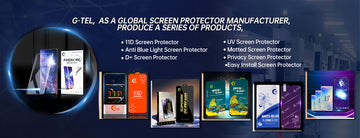Does a Privacy Screen Protector Affect Front Camera Quality?
Does a Privacy Screen Protector Affect Front Camera Quality?
In an age where privacy is a growing concern, more and more smartphone users are opting for privacy screen protectors to prevent others from snooping on their sensitive information. However, many users wonder if these protectors can affect other aspects of their phone, particularly the front camera quality. Will the privacy filter impact the quality of selfies, video calls, or facial recognition?
In this article, we'll explore how privacy screen protectors work, their potential impact on front camera performance, and how to ensure you choose the right screen protector without compromising your phone's capabilities.
1. How Do Privacy Screen Protectors Work?
A privacy screen protector is a specialized layer that limits the viewing angle of your phone’s display. It uses a polarizing filter to block the light at certain angles, so only the person directly in front of the phone can see the content clearly. This is particularly useful in public places like buses, cafes, or crowded areas where others might try to glance at your screen.
While these protectors excel at protecting your privacy, many users wonder whether they impact other phone functions, such as the camera.
2. Privacy Screen Protectors and Front Camera Quality
When it comes to the front camera, the main concern is whether the privacy screen protector obstructs or distorts the camera’s lens, which could negatively affect your ability to take clear selfies or make video calls.
Here are a few factors to consider:
A. Effect on Front Camera Performance
Privacy screen protectors, when designed properly, should not obstruct the front camera lens. The protective layer typically covers only the main screen area and does not interfere with the positioning or functionality of the camera. High-quality privacy screen protectors, like those offered by G-TEL Glass Factory, are crafted with precision to ensure that no part of the screen—including the front camera lens—suffers from performance degradation.
B. Potential Impact on Image Quality
The key concern is the polarizing filter used in privacy screen protectors. While this filter primarily affects the screen visibility from the sides, it generally does not have a significant impact on the front camera. However, lower-quality privacy filters might introduce slight distortions if the camera lens is near the edge of the protector. For optimal camera performance, ensure that the privacy screen protector fits perfectly without covering the lens or interfering with its functionality.
C. Facial Recognition and Face ID
Many smartphones, particularly iPhones, use facial recognition technology (Face ID) for security purposes. Privacy screen protectors should not interfere with Face ID unless they are poorly designed or incorrectly applied. The facial recognition feature relies on the front camera's clarity and accuracy, and a high-quality privacy screen protector should leave the camera fully unobstructed. Always ensure you select a screen protector that is camera-friendly and doesn’t obstruct the face detection area.
3. How to Choose a Quality Privacy Screen Protector
To avoid any negative impact on your front camera or other phone features, choosing the right privacy screen protector is essential. Here are some tips to ensure you pick a quality protector:
A. Ensure Perfect Fit
A well-designed privacy screen protector should be precisely cut to fit your phone model. Check the product details to ensure the protector is compatible with your phone and does not cover the camera lens or interfere with sensors.
B. Opt for Trusted Brands
When buying a privacy screen protector, opt for established and reliable brands like G-TEL Glass Factory, known for producing high-quality, camera-friendly protectors. These brands typically use premium materials and ensure that the protector maintains the performance of your phone’s camera and other functions.
C. Check for Additional Features
Many privacy screen protectors also come with added benefits, such as anti-glare technology or blue light filtering. These features can improve your overall phone usage experience, especially in bright environments. Ensure that the protector you choose offers the best balance between privacy, protection, and camera performance.
4. Conclusion
A privacy screen protector is an excellent way to safeguard your personal information from prying eyes, especially when you're on the go or in crowded places. However, concerns about its impact on front camera quality are valid but largely unnecessary if you choose a high-quality, well-designed protector. A reputable manufacturer like G-TEL Glass Factory ensures that the privacy screen is crafted with precision, so it won't affect your camera, Face ID, or overall performance.
By carefully selecting a privacy screen protector that is compatible with your phone and designed with high standards, you can enjoy the privacy you need without compromising on camera quality or other key features.


